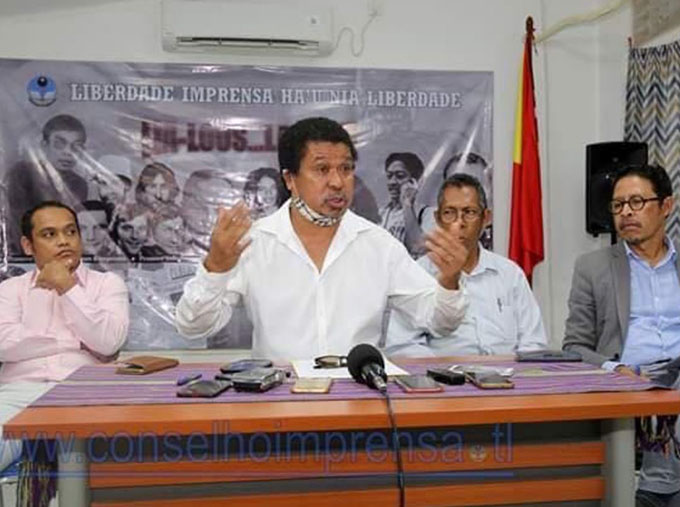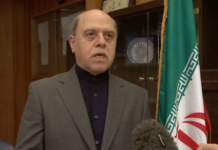
Timor-Leste’s Minister of Justice plans to present to the Council of Ministers a proposal to include criminal defamation in the country’s penal code.
The International Federation of Journalists (IFJ) and its affiliate the Timor-Leste Press Union (TLPU) have protested against the move that would undermine press freedom and public interest journalism, reports IFJ.
The proposal to introduce a law of criminal defamation to Timor-Leste’s penal code (Articles 187-A to 187-F) stipulates that any person who publicly states and publishes through social media “facts” or “opinions” that may offend the honour, good name and reputation of a current or previous member of government, church official or any public official can be prosecuted and punished with up to three years in prison.
READ MORE: Ramos-Horta slams criminal libel plan – threat to rights in Timor-Leste
Media rights groups say the new law will have far reaching consequences as it criminalises actual expressions of one’s opinion and even criminalises a third person sharing this information.
The IFJ has addressed its concerns in a letter to Prime Minister Taur Matan Ruak.
The proposed law inadequately defines “offences” and places the legal burden of proving that a story is true upon the journalist and/or publisher.
The offences would carry between one to three years’ imprisonment. A person who offends against a dead person can also be punished with a prison sentence.
TPLU says: “This bill contradicts the Timor-Leste constitution in articles 40-41 concerning freedom of expression and freedom of the press. We from TLPU condemned this law.
“The government is trying to use a national emergency opportunity to endorse this bill with the aim of punishing those who berate leaders and politicians, but in our opinion this is to criminalise journalists and all citizens who criticize the government.”
The IFJ said: “We urge the government of Timor-Leste to take the necessary steps to ensure the proposal does not make it into the penal code.
“If laws to criminalise defamation are adopted this will mark a retreat from a commitment to democracy and an open society which has been to the very great credit of Timor-Leste.”
Former national president and Nobel Prize winner Jose Ramos-Horta and former prime minister and leader of the majority Fretilin party, Dr Mari Alkatiri, earlier this week criticised the draft law being “rushed” through Parliament and its impact on press freedom.














































